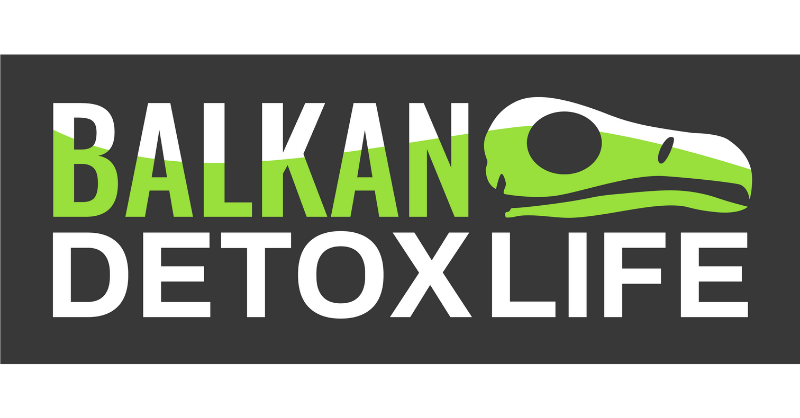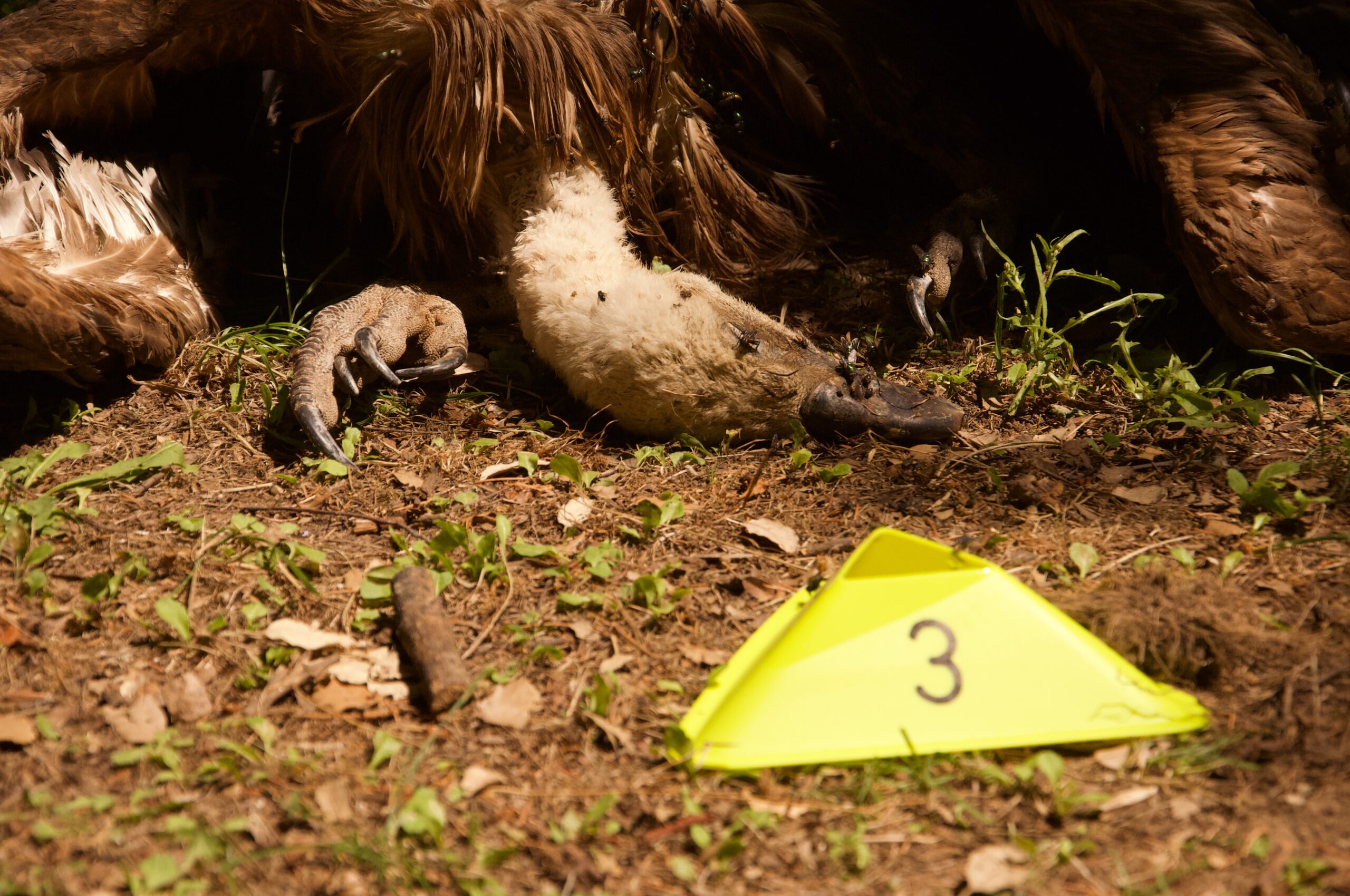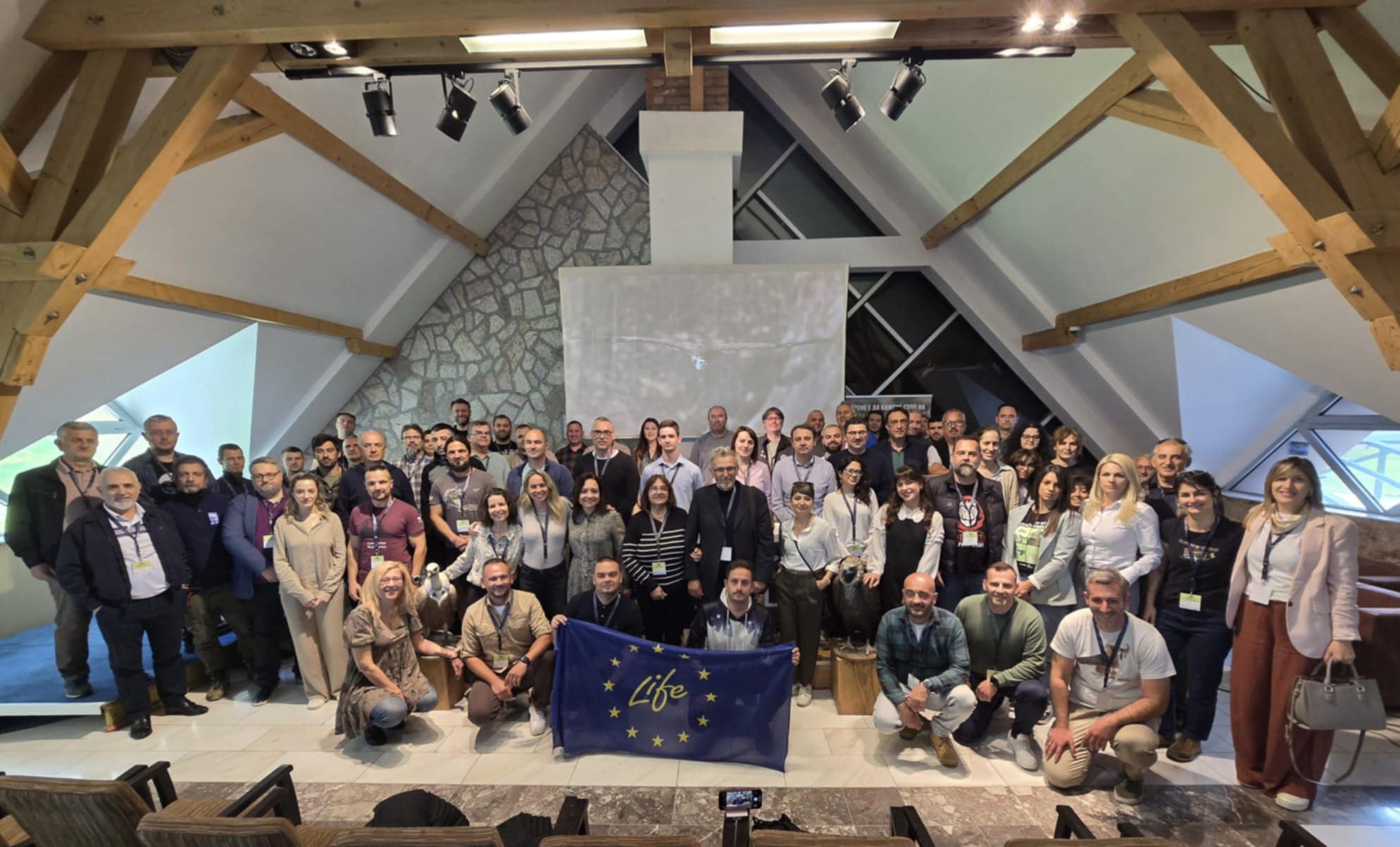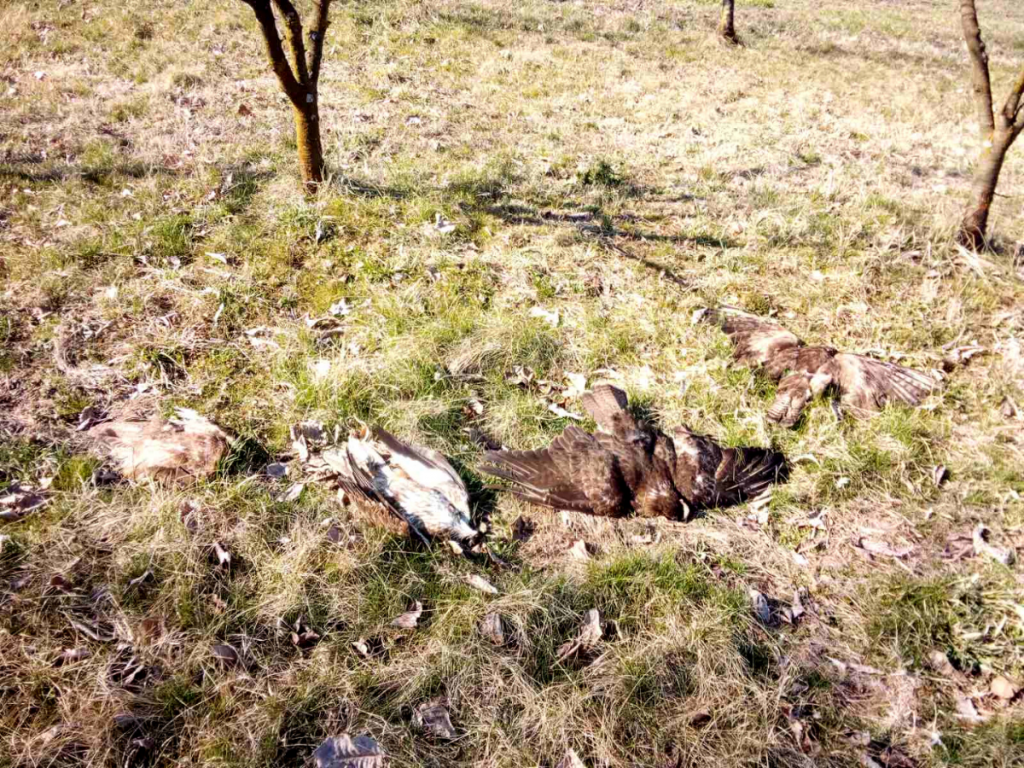
It has been a terrible past few days for poisoning mortality, with grave damage caused. On the same day, two Balkan countries suffered significant losses due to illegal animal poisoning – Bulgaria lost four Cinereous Vultures and Serbia eleven protected birds.
Mass poisoning hits Serbia
On Monday, 14 March 2022, a suspected poisoning incident took the lives of several birds in Serbia. In the village of Veliki Gaj near Vršac, the bodies of nine strictly protected Common buzzards (Buteo buteo) and one Eurasian magpie (Pica pica) were discovered. Near the carcasses, they also found poultry remains coated with a purple-pink substance and an empty bottle of Carbofuran, a highly toxic pesticide banned in Serbia since 2014.
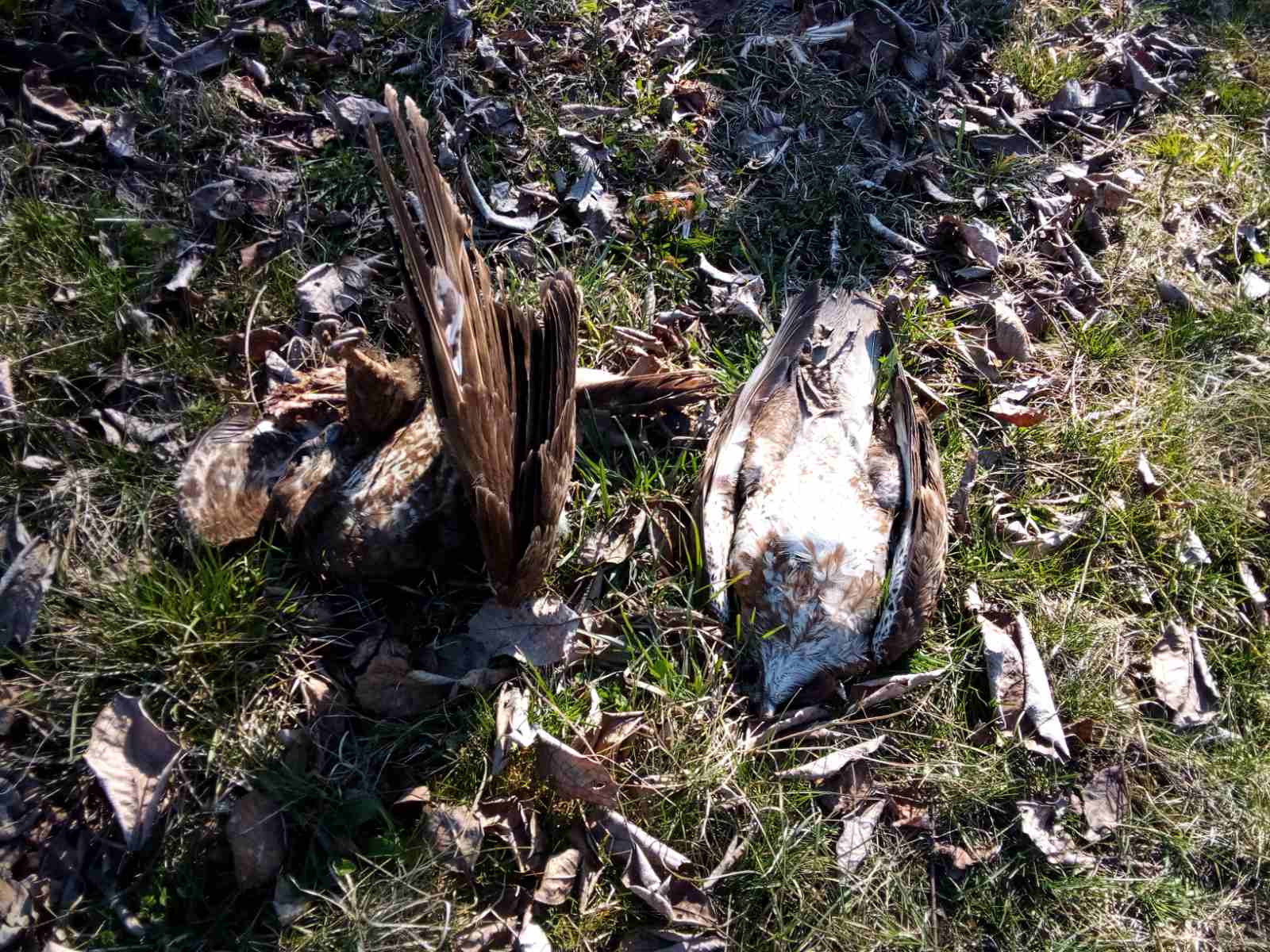

Launching an investigation
Our Serbian BalkanDetox LIFE partners, Bird Protection and Study Society of Serbia (BPSSS), immediately took the necessary measures. They informed and mobilized the Provincial Inspectorate for Environmental Protection and the Provincial Institute for Nature Protection about this case. The authorities responded straight away in a very organized manner. Upon arriving at the scene, they investigated the circumstances of the case, collected the bird carcasses and dispatched them for necropsy and toxicology analysis to confirm the cause of death. Furthermore, after a search of the terrain by the Provincial Institute for Nature Protection and the Police, they found another strictly protected bird species – a Little owl (Athene noctua).
Enforcement is crucial to combat poisoning
Not only does poisoning endanger the lives of both domestic and wild animals, but it also threatens public health. The substance used in this case, carbofuran, is extremely dangerous – 0.5 milligrams are enough to kill 21 people. Wildlife poisoning is punishable by law. The criminal offence of killing animals in Serbia, especially in the case of protected species, is punishable by a fine from 10 to 10.000 euros (for one individual) or imprisonment for up to three years. But even though wildlife poisoning is illegal and a serious environmental crime, enforcement is still lacking. Impunity is one of the main drivers why is still widely practised in Serbia and the Balkans. The BalkanDetox LIFE project aims to change this by reinforcing institutional capacities and prosecution efficacy of poisoning incidents. Through the Wildlife Crime Academy and other actions, the project provides specific training for law enforcement officials and staff relevant for investigation procedures of wildlife poisoning cases, forensic wildlife necropsy, and toxicology to strengthen their commitment to combating this problem and significantly increase the efficiency of their work. Additionally, the project will organize specific workshops concerning the severity of wildlife poisoning, targeting public prosecutors and judges.
Scale and scope of wildlife poisoning in Serbia
Medium-sized birds of prey, eagles and especially vultures often feed on dead animals and livestock remains. However, according to recent data collected by BPSSS, there were no cases of deliberate poisoning of wild birds in Serbia. People usually use poison baits to target predators such as golden jackals, but these rare and endangered birds often fall victim to this harmful practice in the form of secondary poisoning. The period from November to March is especially critical when the crops in the fields are removed and the vegetation is dry since it is easier for vultures and birds of prey to spot animal remains. In Serbia, over the last 20 years, the most common victims of poisoning have been White-tailed eagles (Haliaeetus albicilla), Western marsh harriers (Circus aeruginosus), Griffon Vultures (Gyps fulvus) and Common buzzards.
Well done to BPSSS and the authorities for taking immediate action. We hope the offender(s) responsible will be brought to justice!
The BalkanDetox LIFE project
The ‘BalkanDetox LIFE‘ project aims to strengthen national capacities to fight wildlife poisoning and raise awareness about the problem in Balkan countries. It is a five-year endeavour with a €1.8 million budget, which aims to raise awareness and strengthen national capacities to fight the problem of wildlife poisoning across Albania, Bosnia & Herzegovina, Bulgaria, Croatia, Greece, the Republic of North Macedonia and Serbia. It received funding from the EU’s LIFE Programme, and it is co-financed by the Vulture Conservation Foundation, the MAVA Foundation and Euronatur, as well as by the Green Fund, Whitley Fund for Nature and Environmental Protection and Energy Efficiency Fund for specific actions. Project partners are the Vulture Conservation Foundation as the coordinating beneficiary, and the Albanian Ornithological Society, Association BIOM, Bird Protection and Study Society of Serbia, Fund for Wild Flora and Fauna, Hellenic Ornithological Society, Macedonian Ecological Society, Ornitološko društvo NAŠE Ptice and the Protection and Preservation of Natural Environment in Albania as associated beneficiaries. Furthermore, this project is based on Spanish best practice experience and counts with the support from the Junta de Andalucía and the Spanish Ministry for the Ecological Transition and the Demographic Challenge.

